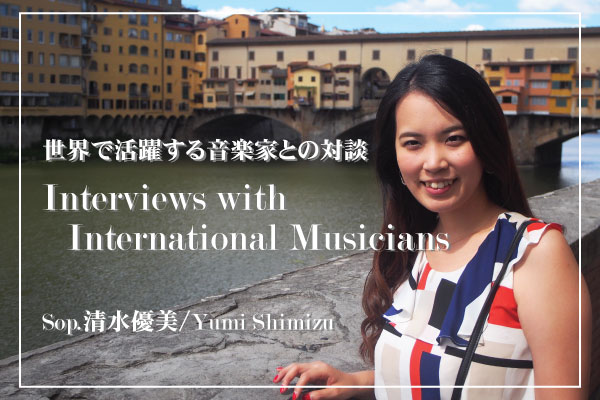
Emanuele Colosetti is an organist and organaro (meaning that he both plays and builds pipe organs, a quite unusual case). He lives in a small village in a beautiful countryside area near Pavia, Italy and has been passionate about classical music since his childhood. As he decided to focus on this very special instrument, we met him in Garlasco, at an ancient shrine, where he regularly plays an old, beautiful organ. A talented young musician, he is also studying at the Conservatory and he is very good at communicating his passion with people of all ages.
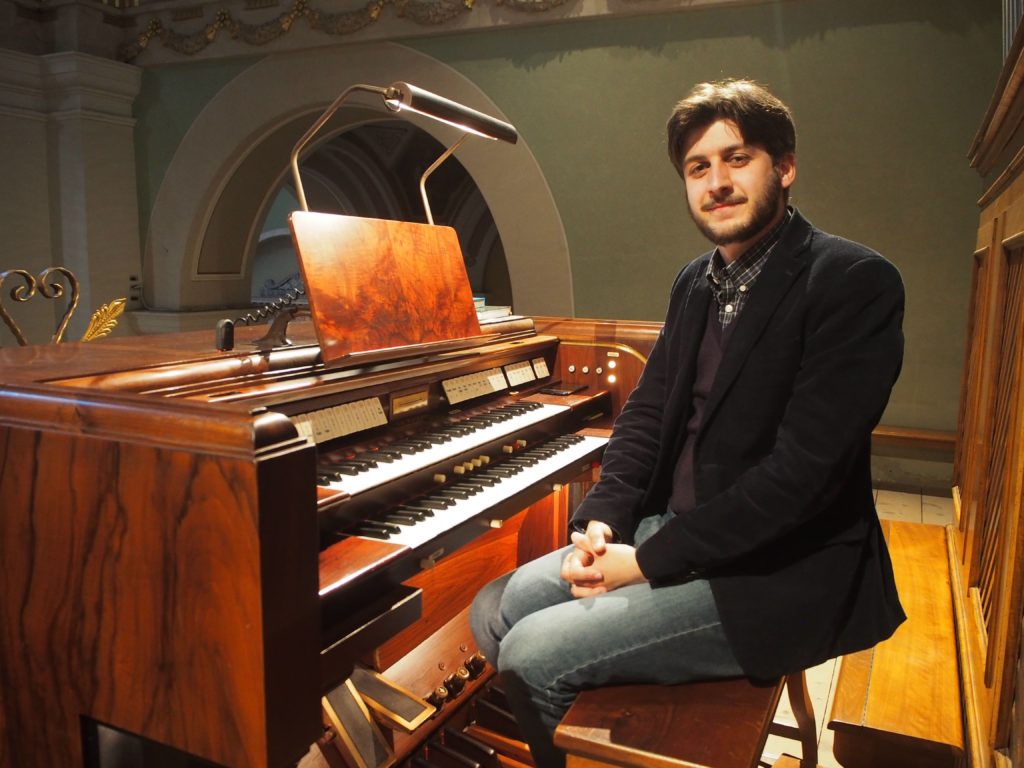
Thanks for the interview – it’s my first interview to an organist, I am very curious! How did it all start?
I have to say that I owe everything to my uncle Mario, he was also passionate about pipe organs since childhood and he brought me closer to this world.
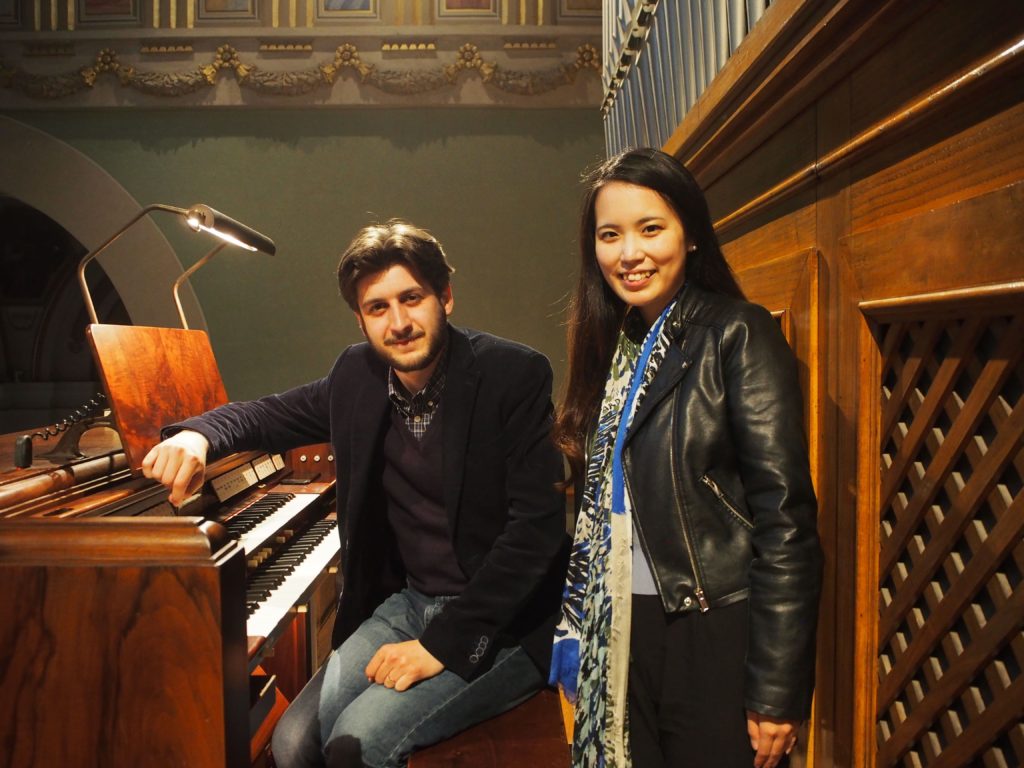
-In fact, you also build pipe organs!
Indeed.
-Is this normal in the world of organists?
Actually it’s two completely separate things: organists play the instrument, “organari” (in Italian) build them and the two categories hate each other so you can imagine what this does to the mind of a person like me who does both! I then studied piano for 5 years at Turin’s Conservatory and after this I went for three years to Crema to work for a specialised manufacturer of pipe organs, thus learning the art of building these instruments, at the same time studying at a professional school which provided me with a vocational diploma in this area.
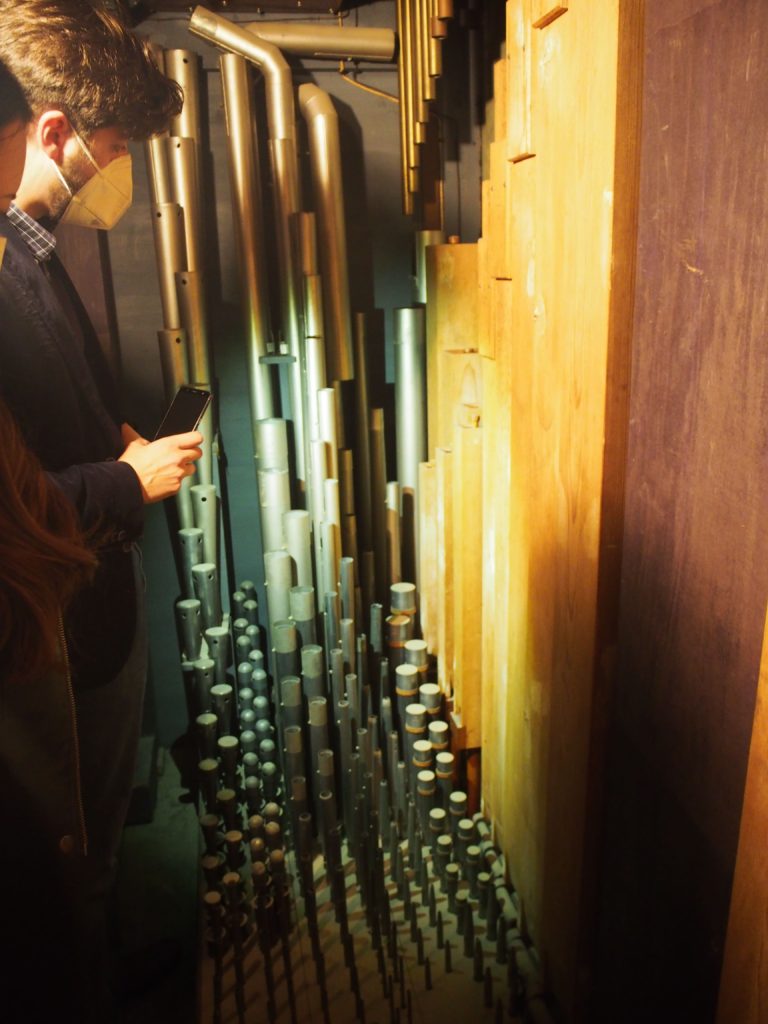
-For me it’s difficult to imagine studying at the Conservatory as a high school, because in Japan Conservatory is more a sort of university. I note it is different in Italy. What did you do after this experience?
In 2018 I decided to continue my study at the Conservatory in Alessandria. Next year I will complete my bachelor’s degree.
-How many people study pipe organ there?
In Alessandria, just one: me!
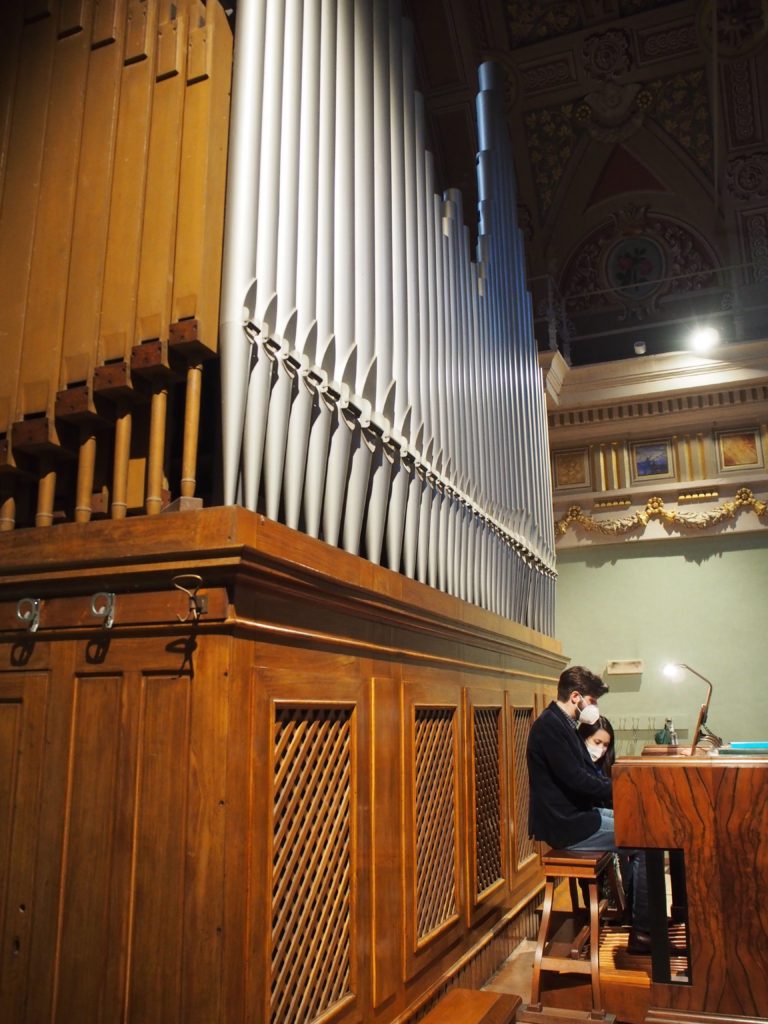
-What about in larger cities, for example at Milan’s conservatory?
Probably a dozen students. There are way more pianists and singers!
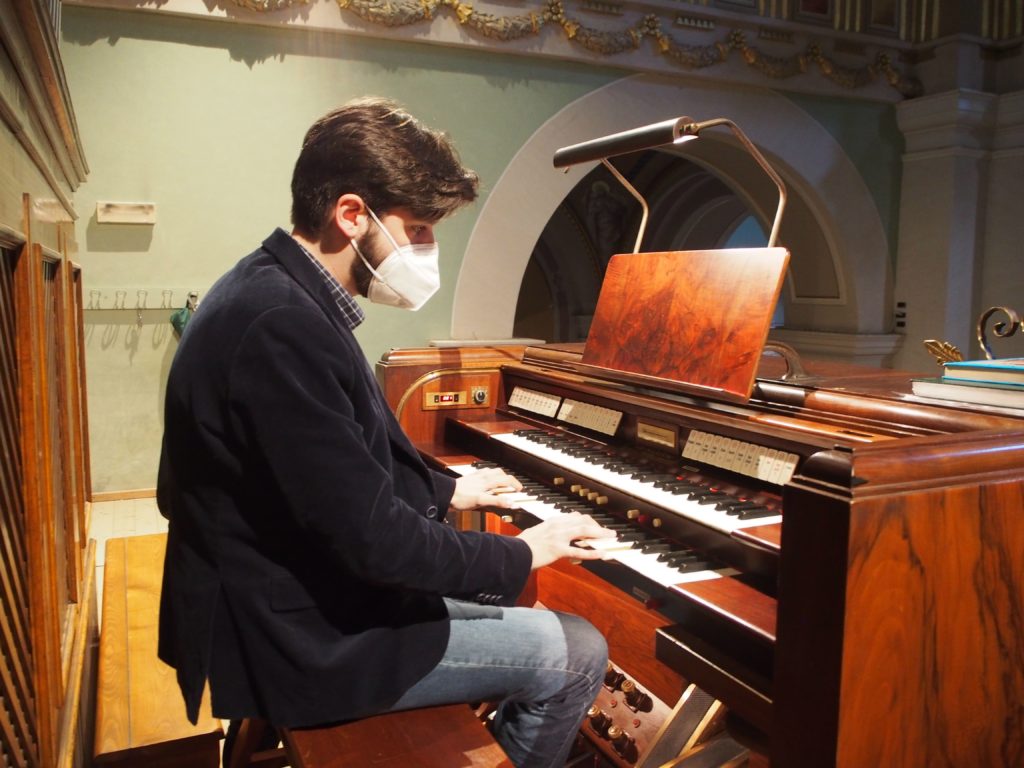
-And what would you like to do after the Conservatory?
I would like to specialise for two more years and then I am thinking about teaching. You can hope to perform as much as possible at concerts, but then comes a situation like this pandemic… it’s just not safe enough to earn a living. The goal is therefore to find a job as a teacher, starting from middle school up to the Conservatory. This would also allow me to continue to study, which will be done for the rest of my life! It’s part of an artist’s life.
-What about organs themselves in Italy. I believe there are many, so theoretically there is a need for organists?
Good point. There is an astonishing number of wonderful and ancient pipe organs in Italy and in Europe, mostly in churches. Every city has its own, each one is different, depending on the epoch. Each of them has a different sound, even in very close villages! The problem is that there is no interest anymore in these instruments and no money. Therefore most organs remain within church’s environment and people don’t go to church everyday and there’s not much money. To restore such beautiful instruments and using them just for masses does not make sense to most priests. They prefer to use the money they have to rebuild the roof….
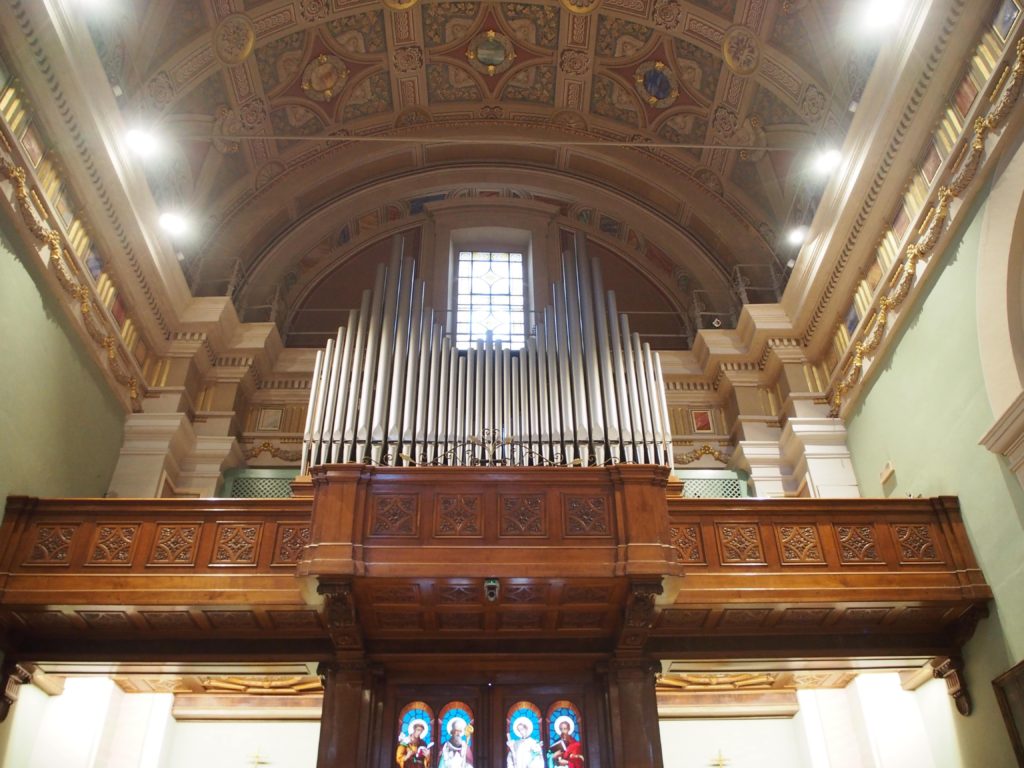
-Is it the same elsewhere in Europe?
Many people say no. However, I went to Luxembourg in September, in Dudelange, where there is one of the most beautiful pipe organs in Europe and the organist is an Italian friend. He said it’s the same, so very much depends on the place itself, not the country. You have some churches or concert halls where everything is in order, maintained and cherished and other places where there is no interest whatsoever.
-What about the manufacturers and restorers, do they have some activity or do they have the same difficulties?
There is some difficulty, but the great companies like Mascioni, Ruffatti and Tamburini are going strong, with orders of new pipe organs and restorations. However, not many new pipe organs are built nowadays. New churches prefer electronic pipe organs, which is not a real pipe organ, it’s a keyboard. However, for example, in the Trentino region every church has its perfectly restored and working organ, in German style: it’s also due to the German culture and liturgical tradition, they want organs. But not all priests understand this.
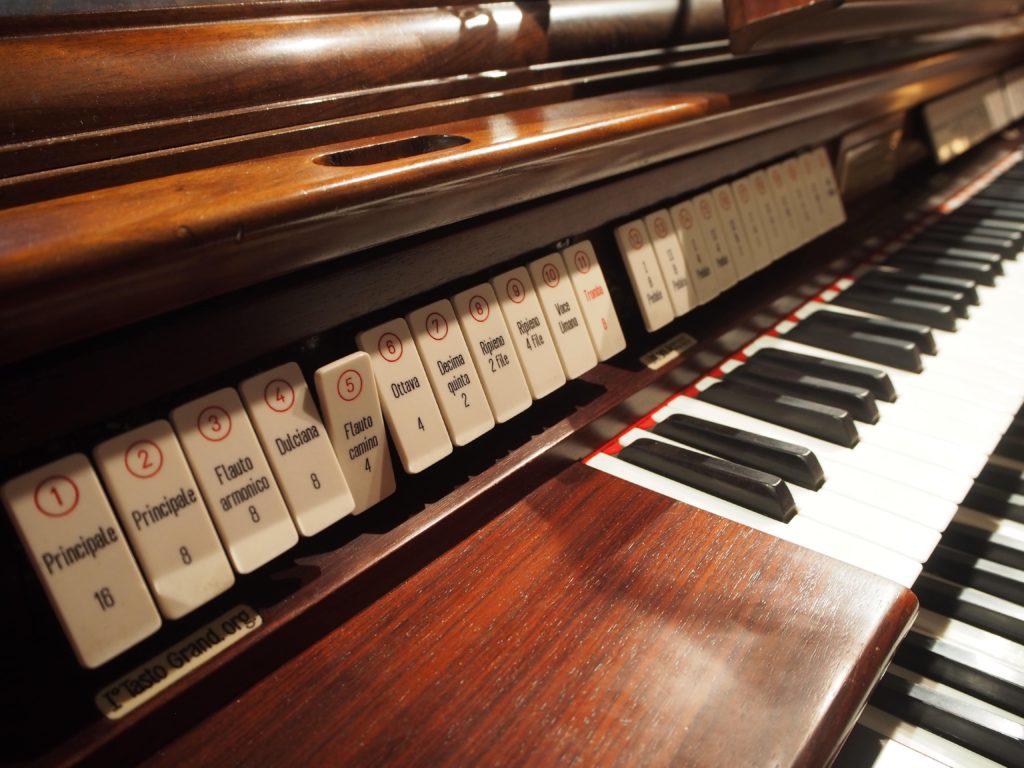
-So even religious people don’t know much about this musical side?
No. Sometimes it’s ignorance and they just don’t care, some other times at least they leave it to experts.
-Maybe it’s a stupid thing to say, but we recently saw a growing interest in pipe organs thanks to movie soundtracks, for example Hans Zimmer and his music for “Interstellar”.
Yes, it may have contributed to create interest and inspire, otherwise in modern context pipe organs are just relegated to their enthusiasts in a closed world.
-When there was the fire at Notre-Dame cathedral in Paris, there was a great interest in the organ and organists worldwide felt very much united in the tragedy. Is there some kind of international organists’ brotherhood?
It was the most beautiful organ in the world. It was not destroyed by the fire and it remained intact. They are now restoring it. I tried that instrument myself some time ago because a friend was performing at a concert the following day. It was an extraordinary experience, being in Notre Dame from 1030 pm to 1am playing that organ. I think you can say there is a sort of brotherhood, but it’s the same for all musicians. Of course every organist was shocked at the fire in the Cathedral and other French cathedral have been recently affected by fires. We asked ourselves “what will have happened to that beautiful organ?”. Every organ is linked to its city and vice versa. A good example is Toulouse, they call it the city of pipe organs because it has some of the most beautiful ones in Europe. Some countries tend to specialise in some composers or study. For example, in Holland they are focusing much on Bach. A friend of mine went to Göteborg in Sweden because there is an organ academy there and many instruments in the city’s churches. There are renaissance organs, 18th century’s organs, romantic organs etc. so you can study what you want on the right instrument.
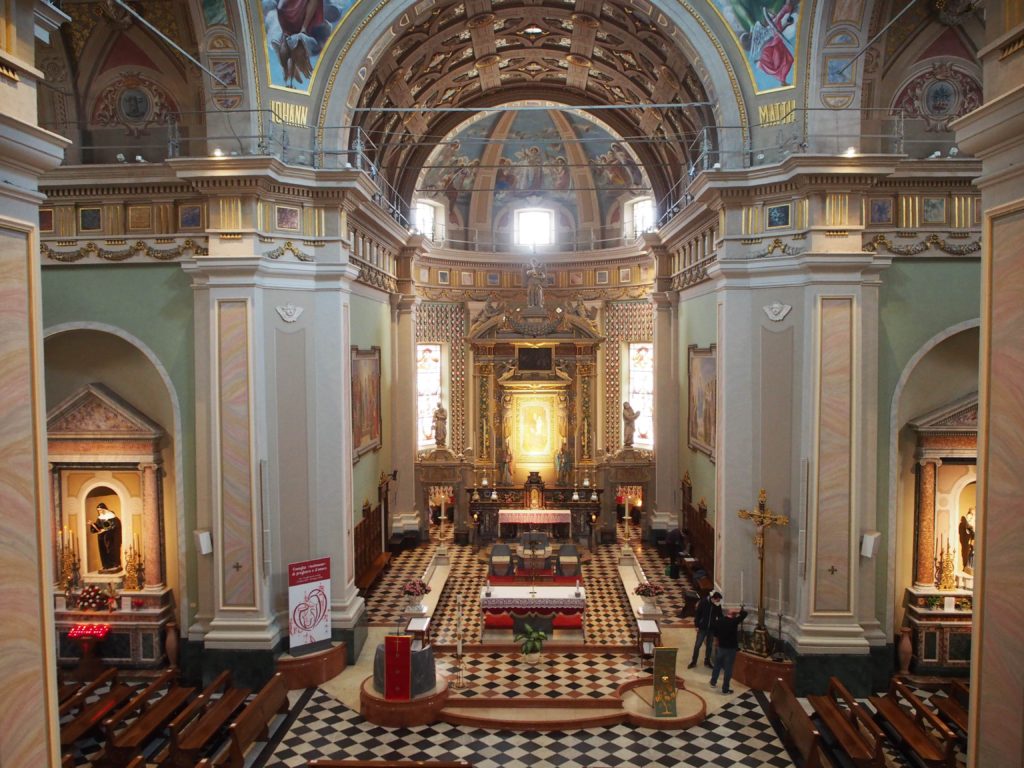
-Do many organists have a strong religious sense, due to the association between the instrument and church tradition?
No, it depends from each individual.
-We see from your online channels that you are very good in social media communication and also on local newspapers and tv.
Yes, I try to do it as much as possible. It also helped me in obtaining this post here at the shrine where we are now. I did not expect to be called, I was playing at my town when they did. They called me and other organists from the area before appointing me.
-Does living in the countryside help your job or is it better in cities? I mean for self-promotion.
You try to work much on your environment. In my case, on peasant’s traditions, agriculture, rice. There is much activity on baroque music in Pavia, close to here. However at a local level in small towns and villages there is not much to do. I tried many times to propose concerts or musical exhibitions, but there is no great feedback. When I inaugurated the new organ at Mede, my town, the church was full. In October I did another and there was 30 people, mostly friends or relatives. That’s the response you can get here. People are busy doing other things. In larger cities you can have more public, for example Milan has more churches, more instruments and a wider public. You can use social media to promote events in the area, but it’s not so easy. We will see from September onwards…
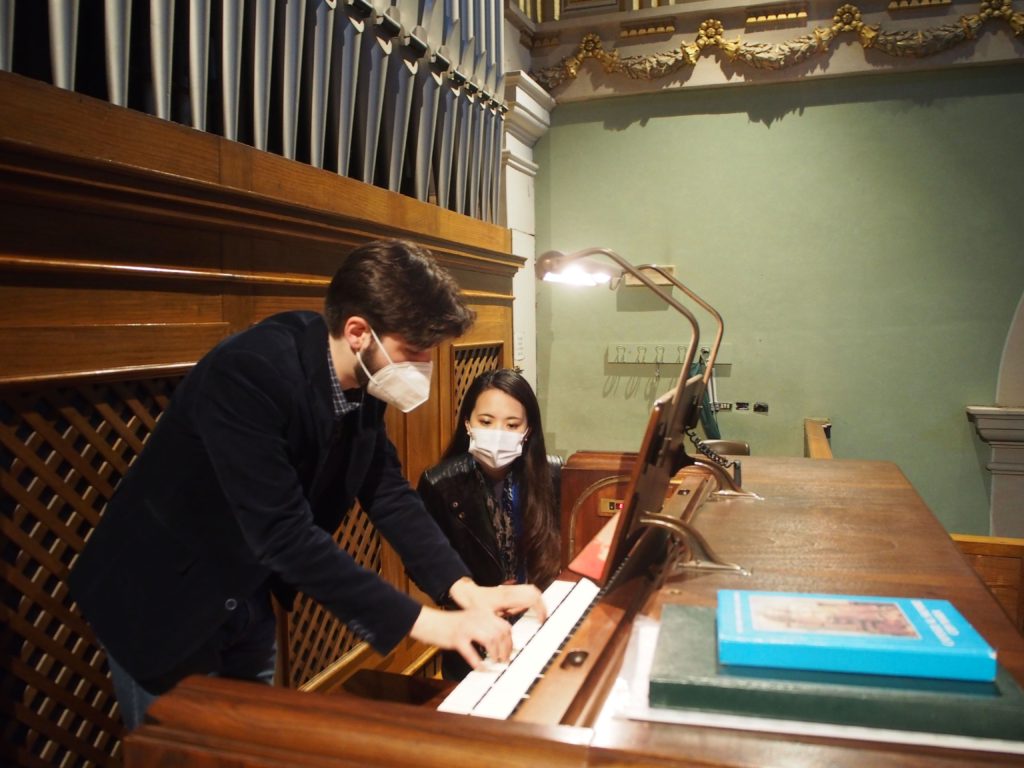
-Yes, the situation of the pandemic was also very bad for musicians.
Indeed. So many had to find other ways to earn money, and in jobs that are not related with music. However for so many of them it’s difficult to adapt to something that is outside music. There have also been suicides, unfortunately. So the situation is very difficult. I am lucky, thanks to this job here at the shrine and my parents, but what if I had been 35 or 40?
-Could you also work as an organaro, meaning building or restoring pipe organs?
Yes, I do some maintenance in the area, also piano tuning and other things. But again the situation is always the same, churches have no budget for organs except for a few cases like here. Sometimes funds arrive in the great cities thanks to foundation etc., but it’s difficult.
-Of course, I understand. Thanks for your time Emanuele!
My pleasure! And now, I will show you the organ itself!
The interview ends as Emanuele shows us how the beautiful ancient organ he plays is done. We can actually enter inside the main chamber where all the pipes are placed and can understand just how beautiful, complex and fascinating this instrument is.
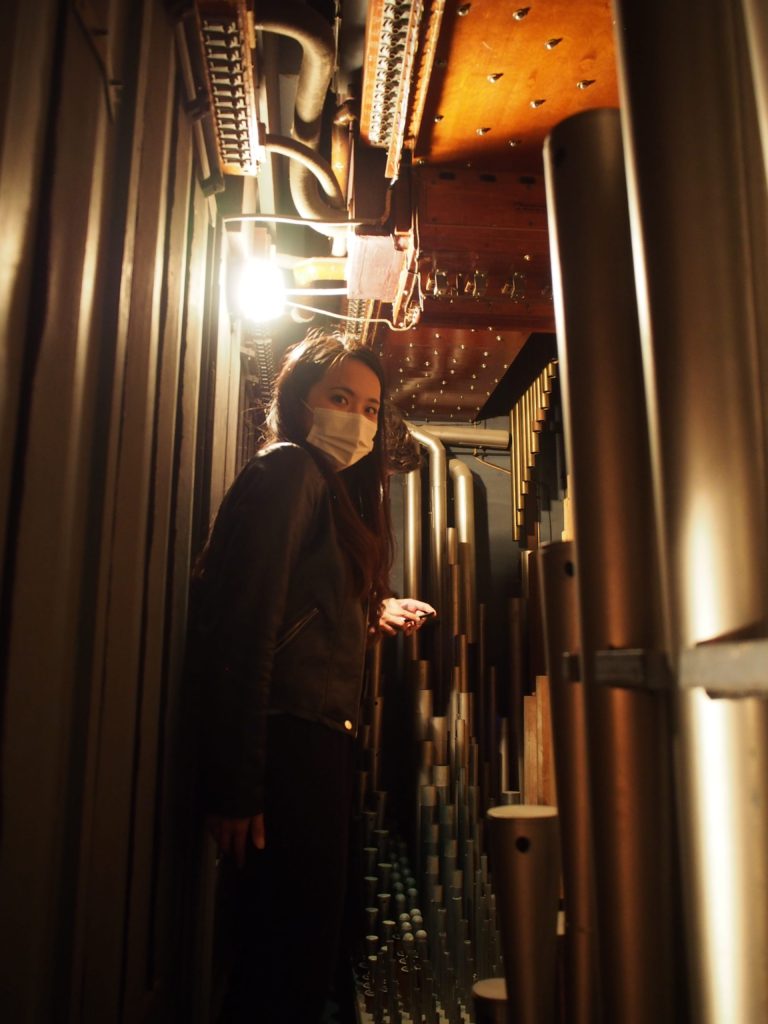
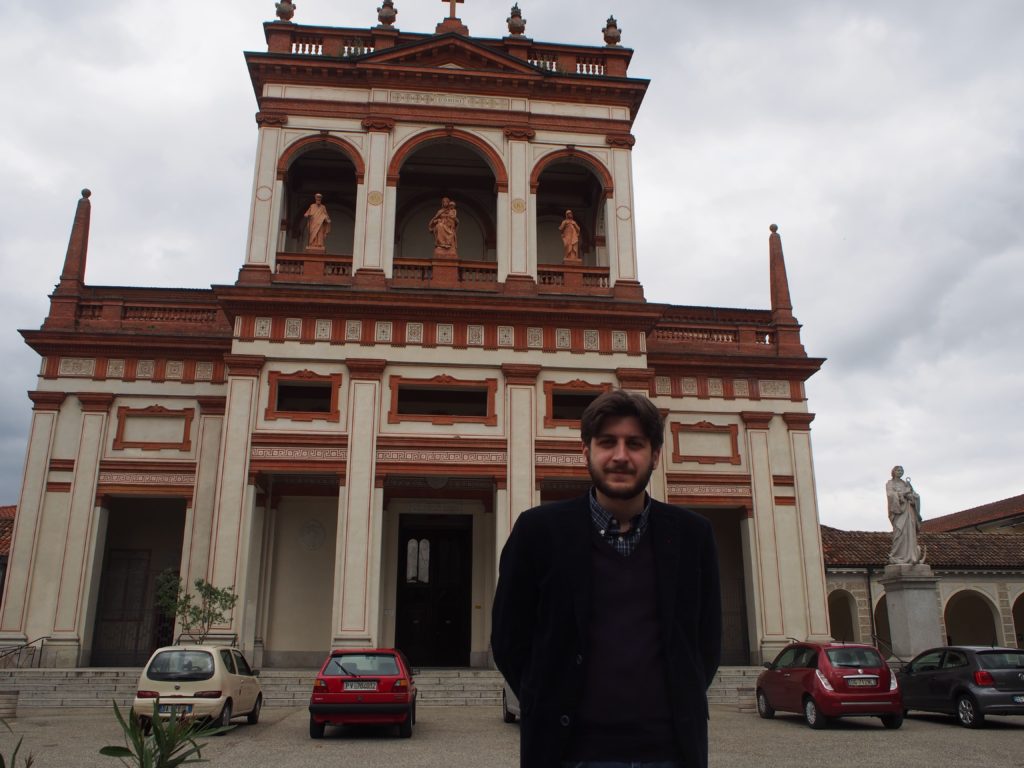
Emanuele in front of the Catholic shrine of Madonna della Bozzola in Garlasco, Pavia, Italy
http://www.madonnadellabozzola.org
Emanuele Colosetti
Youtube: https://www.youtube.com/channel/UCXMZEGo5sQSChyTgavTgpjg
Facebook: https://www.facebook.com/Organo-V-Mascioni-1939-op-519-106665241550524/